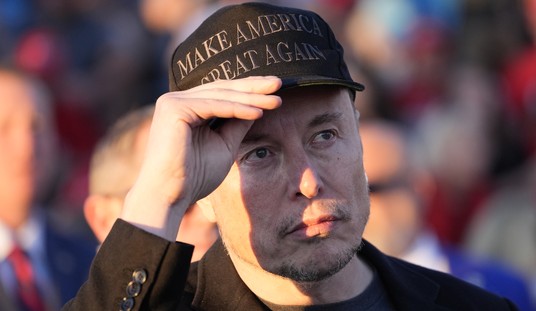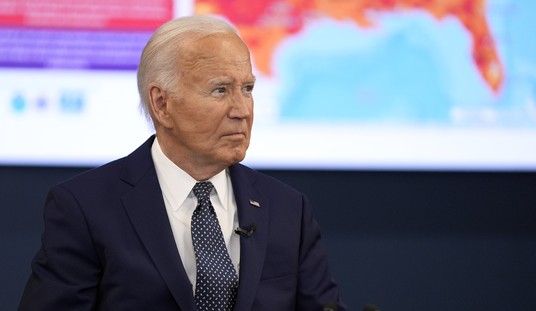The New York Times is considered one of the most prestigious papers in the world, but getting an article of yours posted on their web-rag requires some affinity toward failed socio-economic policies and ideologies that have killed millions and millions of innocent people.
There is no better example of failed systems than Communism, and the greatest example you’re going to find of communism today is the hermit totalitarian state of North Korea.
A story or two a week comes out telling of the horror stories surrounding the country ruled by its communist dictator, Kim Jong Un. Be it starvation, parasites and disease, torture, brutal executions, rape, or religious persecution, North Korea is by almost every definition a hell-on-Earth.
But according to the New York Times, this isn’t a result of the communist system currently crushing the people under its heel. This is the fault of the U.S. and its nefarious plan to make sure an unstable power doesn’t become a nuclear one.
NYT op-ed writer Kee B. Park tells the story of a North Korean woman picking weeds for food, then lists off some stats about how North Korean’s are starving. Then Park points his finger squarely at the U.S. for their troubles.
“The hunger is devastating. And it’s our fault,” writes Park, who goes on to complain about the sanctions the U.S., its allies, and the U.N. placed on North Korea to stop them from advancing their nuclear program.
Led by the United States, the international community is crippling North Korea’s economy. In August and September, the United Nations Security Council passed resolutions banning exports of coal, iron, lead, seafood and textiles and limiting the import of crude oil and refined petroleum products. The United States, Japan and South Korea have each imposed bilateral sanctions on Pyongyang to further isolate the country.
We are trying to inflict pain on the North Korean regime to stop the development of nuclear weapons and missiles. That’s understandable. But in the process, we are also punishing the most vulnerable citizens and shackling the ability of humanitarian agencies to deliver aid to them.
Park admits that North Korean’s were starving before that, but not as much. Somehow, because the North Koreans are starving even more now, the U.S. needs to feel some guilt.
Park ends by saying the Kim regime could just give up its nuclear program and feed its people, but they’re pretty hard headed.
“The North Korean regime could halt its costly nuclear and missile program and use the money to feed its people,” wrote Park. “But the leaders have made it clear that they will never give up their quest for nuclear weapons as long as the United States continues its “hostile policies.””
“This is a chicken and egg game,” wrote Park. “While we are playing, people starve.”
I’m going to suggest something that sounds horrid at the outset, but it’s the result of thinking past the “feel bads” the New York Times appears to have about starving people in countries that practice a totalitarian system.
Let them starve.
If they aren’t there already, North Korea is on the verge of becoming a nuclear superpower with a desperate need for cash, and a willingness to launch rockets over their neighboring countries in order to prove a point. Should they gain a mastery over nuclear weaponry, there’s no telling what kind of war they will start, or participate in. Even if it never comes to war, their ability to make nuclear weapons will be a superb export to anyone willing to pay, and all of their would-be clients are no fans of the U.S., or the western world in general.
I wouldn’t let up on the sanctions that have throttled trade, aid, or getting paid for the world — because it very well may cost the world. We’ll have way more problems than some starving people starving even more.
It’s awful, and I feel horrible for these people. I would like nothing more than North Korea’s oppressive government wiped off the face of the Earth, for both South and North Korea to unify, and the prosperity that South Korea has experienced to spread throughout the land.
That prosperity is there because South Korea engaged in an economic system that didn’t result in starvation, disease, and executions. Their approach was freedom and cooperation. North Korea’s was iron fists and a dictatorial family with pride issues.
Let me be very clear. Communism and socialism do not work, are not good for the people under them, and only cause problems for the rest of the world. We have decades of proof for this. There are people alive today who fled communist or socialist states in order to find a better life in a capitalist one.
Why the NYT continues to mount defenses of it and finger wag at capitalists is a real head-scratcher. They’ve sported a series of pro-communism articles such as “When Communism Inspired Americans,” and even went so far as to release an article about how women were having better sex and had it much easier before the Berlin wall fell.
As Jonah Goldberg wrote on the NYT’s love affair with communism, “the ideas here and throughout the series are fairly obvious, because so many of them hardened into sad clichés long ago. The motives were good! The revolution was betrayed! “Real” socialism is a worthy goal! It’s never been tried!”
But what the New York Times is trying to paint over is rust and decay. It’s trying to make the world’s most oppressive, death-dealing system into an innocent bystander of greedy men, and bad luck.
Tell that to the North Korean defectors who risk life and limb to get away from the oppression the New York Times likes to defend.













Join the conversation as a VIP Member